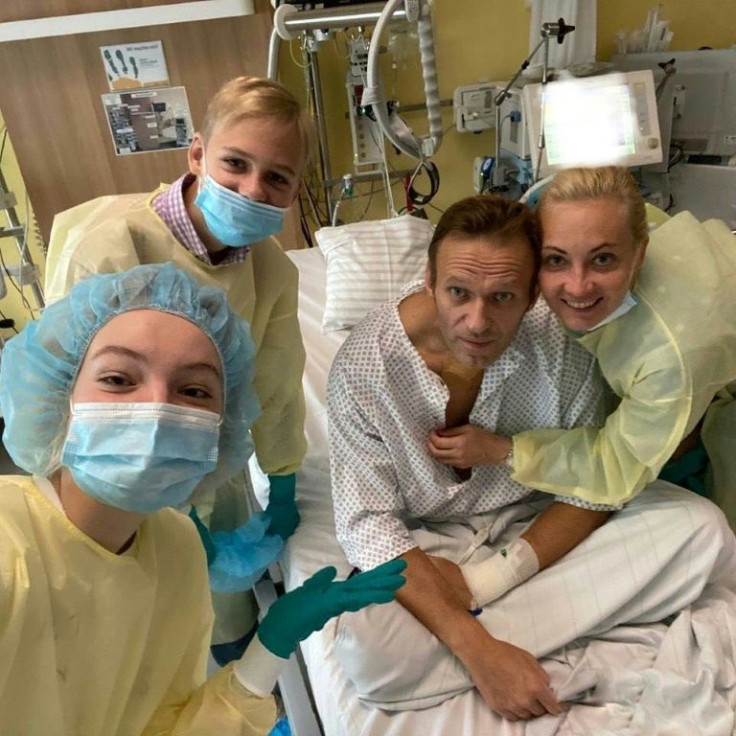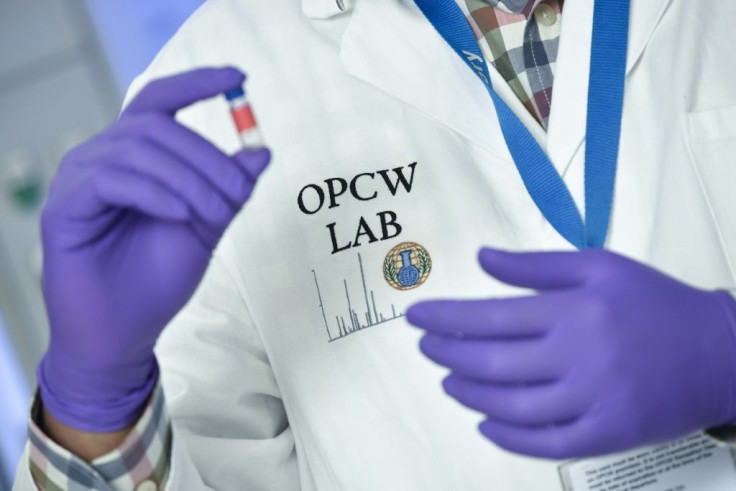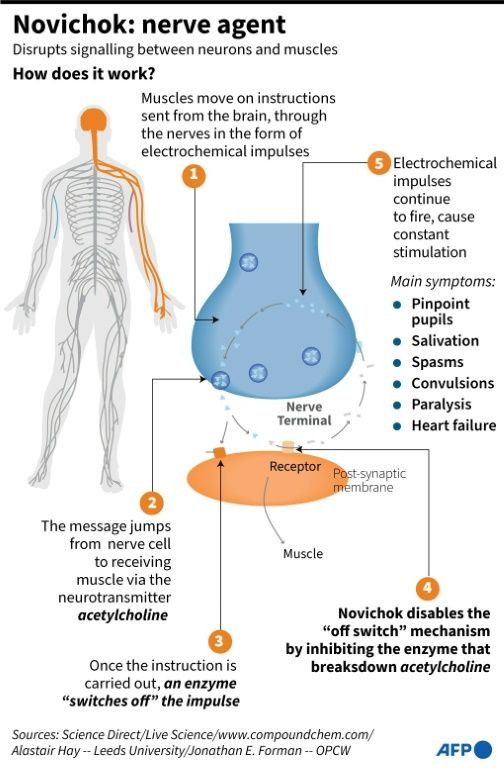Global Watchdog Confirms Novichok In Navalny Samples
The global chemical weapons watchdog OPCW said on Tuesday that samples taken from Russian opposition leader Alexei Navalny, who claims he was poisoned by the Kremlin, contained a Novichok-type nerve agent.
The findings by the Organisation for the Prohibition of Chemical Weapons (OPCW) confirm similar results by a military laboratory in Germany, where Navalny was treated in hospital, and labs in France and Sweden.
OPCW chief Fernando Arias "considered that these results constitute a matter of grave concern," the Hague-based watchdog said in a statement.
They came as Navalny said in an interview that he hoped to return to Russia within months, while showing his trembling hands as evidence of the nerve damage he suffered.

The OPCW said that the blood and urine samples taken from Navalny in Germany by the watchdog's own experts contained signs of a "cholinesterase inhibitor" -- a type of nerve agent.
The traces "have similar structural characteristics as the toxic chemicals" found in two Novichok chemicals that were banned by the Hague-based body in 2019, it said.
The specific type of Novichok found in the Navalny samples was however not itself one of those placed on the banned list last year, the OPCW added.
Western powers have demanded answers from Russia over the poisoning, while Navalny himself has blamed the Kremlin.

Russia has denied all involvement, lashing out on Tuesday at a "conspiratorial scenario planned in advance".
In a statement, Russia also said it would soon present a "chronology of the manipulations behind the scenes made by the main figures in this spectacle".
Navalny was medically evacuated to Germany in late August after falling ill on a plane and spending several days in a Siberian hospital. He is still recovering in Berlin.
"I rule out the option" of not returning to Russia, Navalny, who has been visited in hospital by German Chancellor Angela Merkel, told a popular Russian YouTube blogger, Yury Dud.

Looking thin but smiling and lively, the 44-year-old anti-corruption campaigner said it could be "three weeks or two months" that he remains in German, although "definitely not a year".
Germany formally requested the OPCW's "technical assistance" over the incident after its labs identified the toxin as the Soviet-era nerve agent Novichok.
Berlin said the OPCW's findings "confirm once more the unequivocal proof that Alexei Navalny was the victim of an attack with a nerve agent from the Novichok group."
"The federal government renews its appeal to Russia to explain these events," it said in a statement, adding that the next steps would be discussed at an OPCW meeting in The Hague this week.
Russia insists its medical tests did not find poison in Navalny's system and has not accepted Germany's declarations, saying it requires more evidence.
Moscow has for several years alleged political bias at the OPCW, saying that it is being used as a tool by Western powers to target both Moscow and its ally Damascus.
The OPCW said on Monday it was "ready" to respond to a request from Moscow to send experts to Russia but "sought further clarification... on the type of expertise contemplated".
The watchdog has blamed Syria for a number of chemical attacks, most recently accusing the Syrian air force of a sarin attack on a village in 2017.
Western governments piled pressure on Moscow during this week's meeting of the OPCW Executive Council, the watchdog's governing body of member states.
Britain said there was "no doubt" Novichok was used to poison Navalny.
"The Russian authorities must fully investigate the circumstances of this chemical weapons attack on their soil," British representative Nicola Stewart told the meeting.
Britain has been pushing Russia for answers since the Novichok attack on former Soviet spy Sergei Skripal and his daughter in the English town of Salisbury in 2018. They survived but a British woman died.
© Copyright AFP 2024. All rights reserved.





















